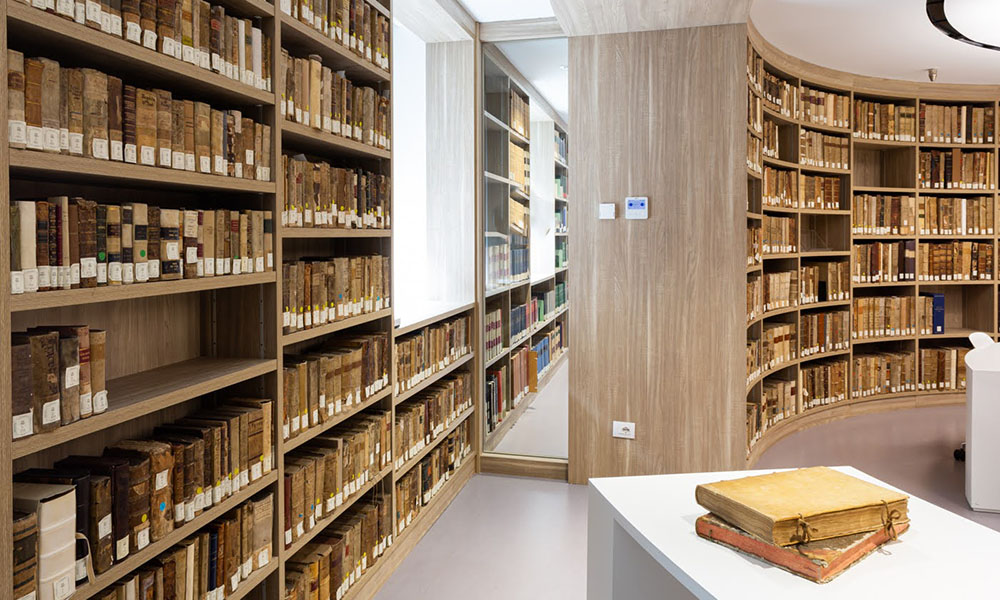Teaching methodology
Lectures are both in frontal and workshop form. The workshops will also provide training in the use of dedicated software for the analysis of data applied to policies. Foreign professors will be present as visiting professors. In addition, for students who need to acquire basic statistical, economic and legal knowledge, there are pre-courses that take place before the start of classes.
The format
Lessons tend to be concentrated on three days a week for a better management of study time. The second semester of the second year is mainly dedicated to promoting the student's integration into the working world through a curricular internship.
The internship can be carried out in public, private and third sector institutions. Students can also choose a study abroad experience through universities affiliated with Università Cattolica within the Erasmus programme or other international projects.
Study Plans
To obtain the Graduate degree , at least 120 university credits must be acquired.
Each exam is awarded a certain number of credits, the same for all students, and a grade (expressed in thirtieths) that varies according to the level of preparation.
The mark awarded in the final examination is expressed in one hundred and tenths.
The Graduate degree programme in Public Policy offers the possibility to choose between two different curricula.
This curriculum focuses on the design, management, analysis and evaluation of policies and interventions to promote personal and collective well-being (for inclusion and social cohesion, protection and promotion of health, development of human capital, growth and protection of the territory and artistic-cultural heritage, sustainable development). The relevance of the topics covered in the curriculum is given by the profound reconsideration underway with respect to the meaning and methods of public and private intervention in the economy and society, both internationally and in Italy. For example, while the need to contain the size, and above all, the deficits, of public budgets has increased, the number of people in need of some form of support from the community has grown. The two needs can only become compatible by spending resources better, making policies increasingly pluralistic and imagining how the "common good" can also be pursued by private entities.
This curriculum therefore aims to teach the methodologies and operational tools that make it possible to devise policies and interventions capable of addressing collective problems in an innovative way, increasing the degree of autonomy of people and communities, so as to make the former freer and the latter more sustainable. The programme of study also focuses on technical tools, which make it possible to accurately measure the effectiveness of the interventions carried out.
Among the possible professional opportunities, it is worth mentioning the managers of the public administration (municipalities, regions, state, European Union, non-territorial public bodies), profit-making companies and non-profit organisations operating in the sectors of welfare and collective well-being.
In public contexts, the professional profile lends itself to supporting the planning, management and evaluation of interventions in the welfare sectors. In private contexts (profit and non-profit) the skills acquired also allow them to cover functions of conception and management of tools for corporate welfare, as well as facilitation of public-private partnerships.
Also of note is the figure of the Operator for environmental management and strategies. In this case, within private sector companies, the trained person can work in the 'environment and safety' functions/offices for the interpretation and application of environmental regulations and any voluntary corporate strategies (Corporate Social Responsibility, environmental and corporate social reporting). In the context of European and international public institutions, the person can operate in policy making processes and in supporting them, for example through research and knowledge management support, interaction with stakeholders, evaluation of implementation processes. Within local institutions, he/she can operate in the implementation processes of environmental regulations, in the formulation of sustainable local development strategies (e.g. land management plans), in communication functions with local stakeholders, in the application of Local Agenda 21, Environmental Impact Assessment (EIA), Strategic Environmental Assessment (SEA).
CrimeSec offers training to understand and address crime and security issues in public and private institutions. These skills require interdisciplinary knowledge (criminology, sociology, economics, law, research methodology, statistics, security technologies) and application skills (learning to use different data analysis software).
To provide a high-profile analytical and professional preparation, CrimeSec focuses on innovative teaching (some courses in English, writing papers, modular teaching, empirical analysis with dedicated software, ongoing evaluation) and on the experience of teachers who come from research, business and public administration.
CrimeSec graduates are in high demand to fill different roles in private and public organisations. In these realities, they analyse and identify crime and security risks; identify and develop tools for monitoring, evaluation, prevention and harm reduction; they contribute to the development of initiatives, measures and security plans of the organisation and to the performance of operational activities related to the prevention and management of harmful events (e.g. crimes, natural disasters, etc.).
The internship experience offers an important opportunity to enter the world of work. Thanks to the educational support of the Transcrime Center, CrimeSec students receive internship offers in the field of crime and security from companies and institutions every year. Internships often evolve into employment contracts at the end of the studies.




